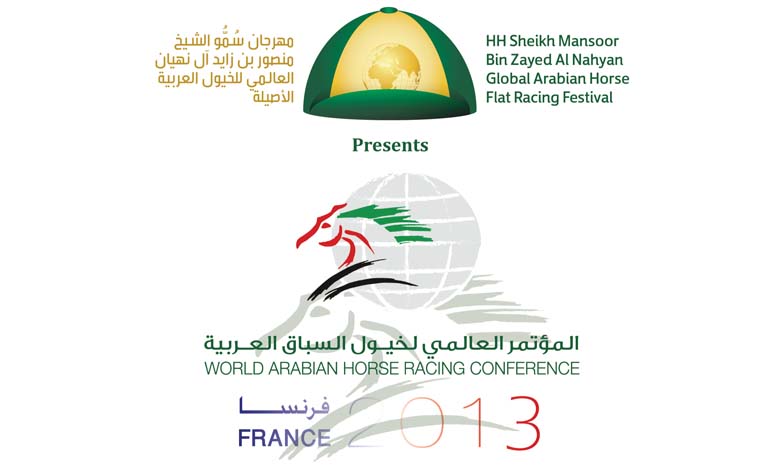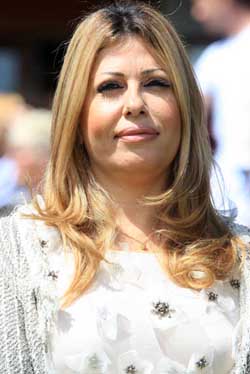
 |
Interview with Lara Sawaya, director of the
Sheikh Mansoor Global Festival
Why was Toulouse chosen this year?
Toulouse is the centre for Arabian racing in France. That is why this conference is very important for the region and for the Purebred Arabian community in general.
Was it your choice?
We wanted to hold the conference in France and that is why we held talks with Yves Plantin (President of AFAC). It had already been announced last year, at the conference in Berlin. It remained to find a location. On another note, we have already said that the 5th edition will be held in London in 2014. |
What do you expect from this edition?
It has to be said that there is a new theme this year in the work sessions: that of rules and conditions of Purebred Arabian Races. It is very important, everybody was looking for it and therefore it was needed. Notably it includes establishing the rating of horse, handicapping, and the condition for a race to obtain Listed or Group PA status. This technical aspect was missing from precious editions. All of the speakers at the different work sessions will be new and the moderators are top level presented and journalist.
Persons around the world can follow the debates from the Conference on the television or the internet?
Yes, they will be aired live on the television channel Abu Dhabi Sports TV during the three days of the conference as well as the day’s racing on Sunday June 9th, which features the Sheikh Zayed bin Sultan Al Nahyan Cup-Prix Ourour (Listed PA) and the Sheikha Fatima bint Mubarak Ladies World Championships, as well as being streamed on our website http://www.sheikhmansoorfestival.com/en-us/web.tv.aspx
Chronology of the World Arabian Flat Racing Conference
23-25 September 2010 – Abu Dhabi
The first edition was held in the Abu Dhabi National Exhibition Centre which also hosts the Annual Hunting and Equestrian Exhibition. The credit for this initiative goes to HH Sheikh Mansoor bin Zayed Al Nahyan and the Director of his Festival, Lara Sawaya, in partnership with the IFAHR (International Federation of Arabian Horse Racing Authorities) and the Arabian Horse Society.
Among the numerous themes addressed was the evolution of the Purebred Arabian race, which has improved in speed and physique. The question of reproduction through embryo transfer (which is strictly forbidden in thoroughbreds) was a cause of debate among the speakers.
Concerning training, Purebred Arabians are considered more intelligent than their Thoroughbred counterparts, closer to mankind which makes them very special.
Their history, which dates back to their relationship with Bedouin tribes, was also evoked. The oldest breed of horse is also that which has the newest official races reserved for it so they deserve to be regulated.
The emphasis was put on the unique aspect of this breed and the attempt to make each race an event in itself and not just an addition to a normal race card. In this regard, the work of Lara Sawaya and the Sheikh Mansoor International Festival must be highlighted.
16-18 June 2011 – The Hague
Due to the desire of HH Sheikha Mansoor bin Zayed Al Nahyan to see the Conference change location each year, it was the capital of The Netherlands that hosted the second edition. As always, training, breeding, veterinary and care and the future of the breed were on the programme.
But the important part was the discussions on the place in the world of Purebred Arabian horse racing with the creation of the Sheikha Fatima bint Mubarak Ladies World Championship (IFAHR), the world’s richest championship for female amateur riders and Purebred Arabians. The UAE ambassador to Sweden, HE Sheikha Najla Al Qassimi, has been part of the rapid progress accomplished by women in sport in her country and her appointment is a perfect example of this.
7-9 June 2012 – Berlin
Breeding was once again one of the major themes with the confirmation that the mare has the principal genetic role while the stallion as an improving role as regards speed and energy. The change in the role of Purebred Arabians though the ages was also evoked, from war horse with a heavier build to race horse with an evolved model.
Veterinary care is not solely reserved for physical problems but also for stress mental fatigue which affect certain horses, notably during long journeys. The influence of surfaces (grass, sand, synthetic) can affect joints and this was one of the topics discussed by the numerous specialists.
The important moment of the third edition was the question of nutrition for Purebred Arabians. This is an important factor in the success of a horse, just like pedigree and the quality of training. The extreme climate conditions of certain countries in the Persian Gulf were discussed as to regards the lack of quality feed supplies.
|

